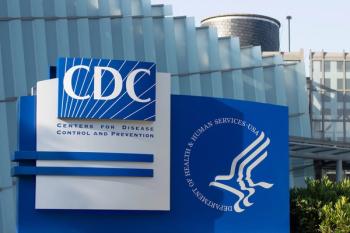
Physician perceptions a major barrier to adult vaccination
A new report reveals physicians have issues they need to resolve to move adult immunization forward.
The obstacles to adult vaccination have been well-documented, but a new study reveals that overcoming physician perceptions about vaccines may be the biggest hurdle of all.
The report, published in
Most physicians polled were on board with the need for adult vaccination, with 76 percent agreeing that too many adults are suffering from vaccine-preventable diseases and 74 percent agreeing that adult vaccines aren’t being used as often as they should. While most physicians-91 percent-noted in the survey that influenza vaccines were very important, those numbers dropped with other vaccines, with just 66 percent of physicians considering the zoster vaccine very important.
Rates of vaccine recommendations were fairly even for influenza, at 84 percent to Medicare patients compared to 82 percent for commercial plan patients. Administration rates were similar, with 80 percent of Medicare patients administered the vaccine by their clinicians, and 78 percent of commercial plan patients. Referrals were made to 11 percent of patients in both groups, according to the report.
Tdap recommendations made to patients with commercial insurance plans were higher than for patients with Medicare, but zoster recommendations were made more often among patients with Medicare than commercial patients, according to the report.
More than 40 percent of physicians noted in the study that they would be “much more likely” to administer Tdap and zoster vaccines if they were covered under Medicare Part D, calling the financial barriers a “major” problem for these patients compared to patients with commercial insurance plans. The survey noted that physicians also were less likely to stock Tdap and zoster vaccines, mainly due to cost, but also preferred to administer these vaccines in their practice rather than refer a patient out.
Sean Clements, head of U.S. Vaccine Communications at GSK, said the survey findings are consistent with earlier studies that show physician knowledge, attitudes, and preferences influence their decisions about whether or not to recommend vaccinations to adult patients. The study also shows that cost, lack of tracking systems, and competing demands are all barriers that affect access to immunizations for adults, he says.
“A primary goal of the present paper was to highlight physicians’ perception and use of adult vaccinations in practice, with focus on examining whether there are differences between patients with Medicare coverage versus patients with commercial insurance coverage,” Clements said. “Our survey revealed differences in physician knowledge, practices-recommendation, administration, and referral, and perceived barriers for vaccines by insurance type, as well as gaps in physicians’ knowledge relating to patient eligibility for some vaccinations, vaccine insurance coverage and co-payments.”
The financial burden-related to the high cost of acquiring and storing vaccines-was cited as an obstacle to adult vaccination programs, Clements said, as well as failure to assess vaccination status during visits. Co-pays are also a hurdle, especially for Tdap and zoster vaccines for Medicare Part D patients.
“Policy changes that could help reduce the patient out-of-pocket cost and improve practice reimbursement for vaccine purchase and administration may reduce some of the barriers to adult vaccination, particularly for the more expensive vaccines with Medicare patients,” Clements said.
Newsletter
Stay informed and empowered with Medical Economics enewsletter, delivering expert insights, financial strategies, practice management tips and technology trends — tailored for today’s physicians.






